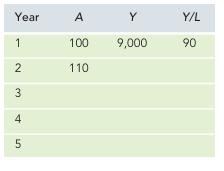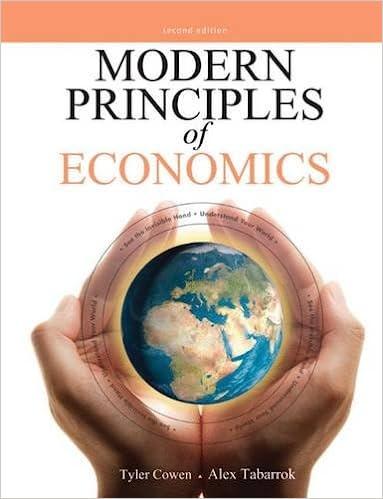Since ideas can sometimes be copied quite easily, many people think that we should put more effort
Question:
Since ideas can sometimes be copied quite easily, many people think that we should put more effort into creating new ideas. Let’s see if there are trade-offs to having more people creating new ideas. To keep things simple, let’s assume that the growth rate of the economy depends on how many people search for ideas, whether in laboratories, or huddled over laptops in coffee shops, or while listening to “Stairway to Heaven” at 3 in the morning. People either produce stuff or produce ideas. Here’s how this economy works:
Y1 = (1 - R) × A1 L (GDP production function)
A1+1 = (1 + R) × A1 L (Technology production function)
There are a total of L people in the society, a fraction (1 – R) of them work in factories and offices making stuff (remember, people working in offices help create output, too!), while the remaining fraction R try to come up with good ideas all day long. To keep the story simple, there are no diminishing returns.
a. What’s the trade-off here? If 100 % of the people work to make new ideas (R = 1), won’t that create a prosperous world?
b. In this society, if people are willing to wait a long time for a reward, should they choose a large R or a small R?
c. Plot out GDP in this society for 5 years if A starts off at 100, L starts off at 100, and R is 10%.

d. Plot out GDP in this society if the society instead chose R = 20%. 558
Step by Step Answer:





